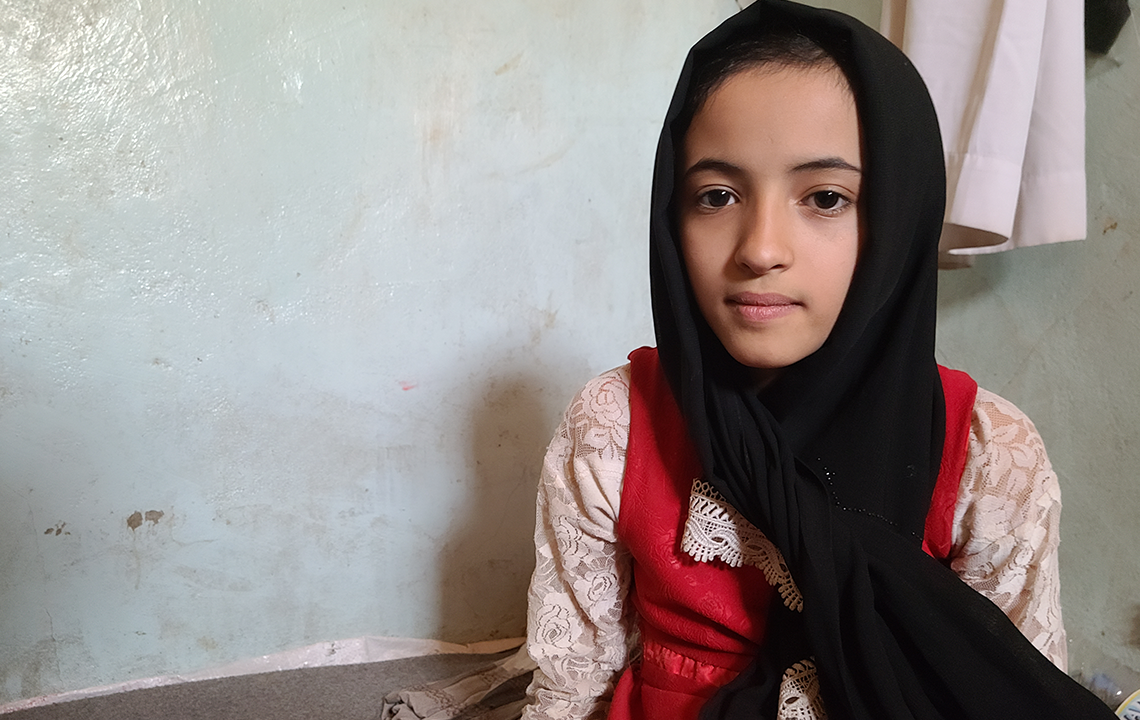A global pandemic and UN call for a global ceasefire were not enough to halt the ongoing wars globally.
Nearly 200 million children are living in the world’s most lethal war zones, the highest number in over a decade, many of whom are already at risk of climate change and facing unprecedented levels of hunger. In addition, more than 330 million children are at risk of recruitment to armed groups and government forces worldwide – three times more than in 1990.
 Tagreed (11 years old), was injured and lost one of her legs when she was hit by a missile in July 2019 in Saada, Yemen
Tagreed (11 years old), was injured and lost one of her legs when she was hit by a missile in July 2019 in Saada, Yemen
This spike was driven partly by outbreaks of violence in Mozambique, as well as ongoing conflicts in Afghanistan, the DRC, Nigeria, and Yemen, which are already on the frontline of climate change’s worst impacts and coping with life-threatening hunger crises.
Recruitment of armed groups
While girls only made up 15% of UN-reported cases of recruitment in 2020, they are often targeted to act as spies, to lay mines and improvised explosive devices, or to act as suicide bombers because they are less likely to draw attention. Their vulnerability, low status, and gender also makes them susceptible to widespread abuse.
Children who are used by armed groups and forces are at greater risk of injury, disability, chronic mental or physical illness, sexual violence, and death.
Inger Ashing, CEO of Save the Children International, said: “It’s simply horrifying that in the shadow of COVID-19 and the UN’s call for a global ceasefire, more children than ever before are caught in the crosshairs of the deadliest war zones – where they’re already facing more droughts, floods, and hunger – and more likely to be injured, recruited or killed. Not even a global pandemic was enough to stop the most brutal wars and atrocities.”
We know we can tackle the greatest challenges of our time and achieve remarkable progress when we work together, like the recent development of COVID vaccines. We now have to do the same to protect children from the horrors of conflict.
Report: Stop the war on children - a crisis of recruitment pdf - 4,64 MB